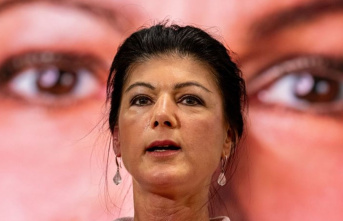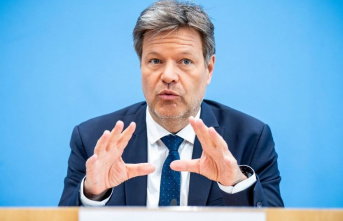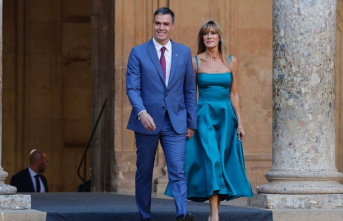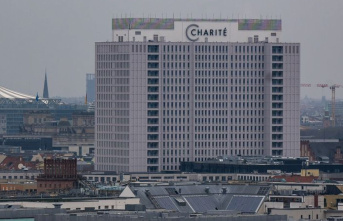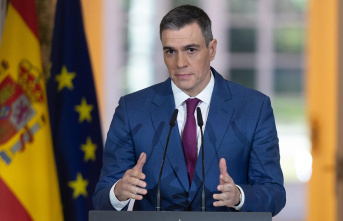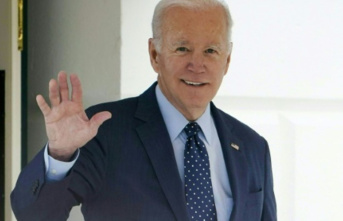The Munich Security Conference didn't really deserve its name this year: there can be no question of security. For the first time in 60 years, the meeting of high-level politicians and experts takes place during a war instigated in the heart of Europe by a nuclear power. The topic is not as usual: How do you minimize security risks and prevent wars? This time the conference will be dominated by the question: how to end Russia's war of aggression against Ukraine?
This war began when the 2022 Security Conference was over exactly four days. In Munich at the time, US Vice President Kamala Harris spoke of a "script of Russian aggression". Chancellor Olaf Scholz (SPD) warned: "War is threatening again in Europe." Shortly thereafter, what the new conference leader Christoph Heusgen calls a "civilization breach" happened. Russian President Vladimir Putin launched a war of conquest that no one would have thought possible in 21st-century Europe.
Representatives from 96 countries in Munich
In order to pursue the question of how this war can now be ended, Heusgen - formerly foreign policy adviser to Chancellor Angela Merkel (CDU), then Germany's UN ambassador - invited 40 heads of state and government to the Hotel "Bayerischer Hof" to his premiere as head , as well as almost 100 ministers and other government representatives and experts from a total of 96 countries. Most of these states are among Ukraine's western allies.
The US delegation led by Vice President Harris is the largest ever. Foreign Minister Antony Blinken and around 60 senators and members of the House of Representatives are also among them. Also present: French President Emmanuel Macron, Polish President Andrzej Duda and British Prime Minister Rishi Sunak.
Zelenskyj sets the tone for the conference
Ukrainian President Volodymyr Zelenskyy is expected to open the conference on Friday with a video address - although this was not officially confirmed by the conference management on Thursday. Zelenskyj will set the tone with his speech. Then Scholz and Macron are on the program, followed by Harris and Sunak on Saturday.
The Russian leadership is not invited for the first time since the 1990s. Foreign Minister Sergei Lavrov has long been one of the regular guests. He was also invited last year, when 150,000 Russian soldiers had already deployed in the border area with Ukraine. Lavrov then canceled himself.
Heusgen: No propaganda by the "war criminals in the Kremlin"
This time, Putin's government is excluded from the outset. "It's too bad for us to offer these war criminals in the Kremlin a stage for their propaganda at the Munich Security Conference," says Heusgen.
But it's not like Russia isn't there at all. The country is represented by the opposition. Former oligarch Mikhail Khodorkovsky, now long in the West, presents his book How to Kill a Dragon. On Saturday evening he sits on stage with former world chess champion Garry Kasparov.
It's about arms deliveries and diplomacy
What is certain is that western Ukraine will again demonstratively back its fight against the Russian attackers. It will be about what further military support can look like. Who is ready to support Scholz's tank alliance? Should fighter jets, warships and submarines also be supplied? Are there red lines? And if so: which ones?
Topic also: What chance does diplomacy currently have? So far, there are hardly any ideas for this. Ukraine sees the withdrawal of Russian troops as a prerequisite for negotiations. She is also referring to Crimea, which Russia took over in 2014. The West does not want to act over the heads of the Ukrainians. This limits the scope. Ideas like that of Brazilian President Lula to set up a "peace club" to mediate are not taken seriously by most.
Perhaps the most exciting guest is arriving from Beijing
However, a country is represented in Munich that could play an important role in the search for peace: China is sending its top foreign policy officer, Wang Yi, who was only promoted to the Communist Party's Politburo by the Foreign Ministry in October. On his trip to Europe, after Munich, he also visits Moscow. Beijing has been supporting Putin so far, but at the G20 summit in November, together with the western countries, it warned against the use of nuclear weapons. This is taken as an important signal.
But Wang Yi's presence is significant for another reason: people are eagerly awaiting whether he will hit Blinken or Harris. This could help defuse tensions between the two major powers following the downing of a suspected Chinese spy balloon.
The Iranian leadership is not invited either
Other topics will have a hard time. The demonstrations in Iran and the future of the nuclear deal that is on hold will be topics. The government in Tehran has not been invited either. Here, too, it is more about coordination between the western allies.
The presentation of a national security strategy by the federal government was also planned for Munich. Foreign Minister Annalena Baerbock (Greens) and Scholz have not yet been able to reach an agreement. So the topic falls flat. Efforts to break the blockade on NATO's northern expansion to include Finland and Sweden must also take place elsewhere: Turkey will not be represented by prominent government officials because of the earthquake.


